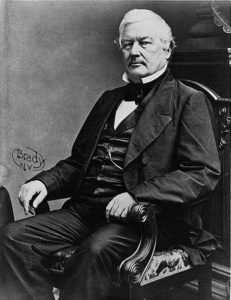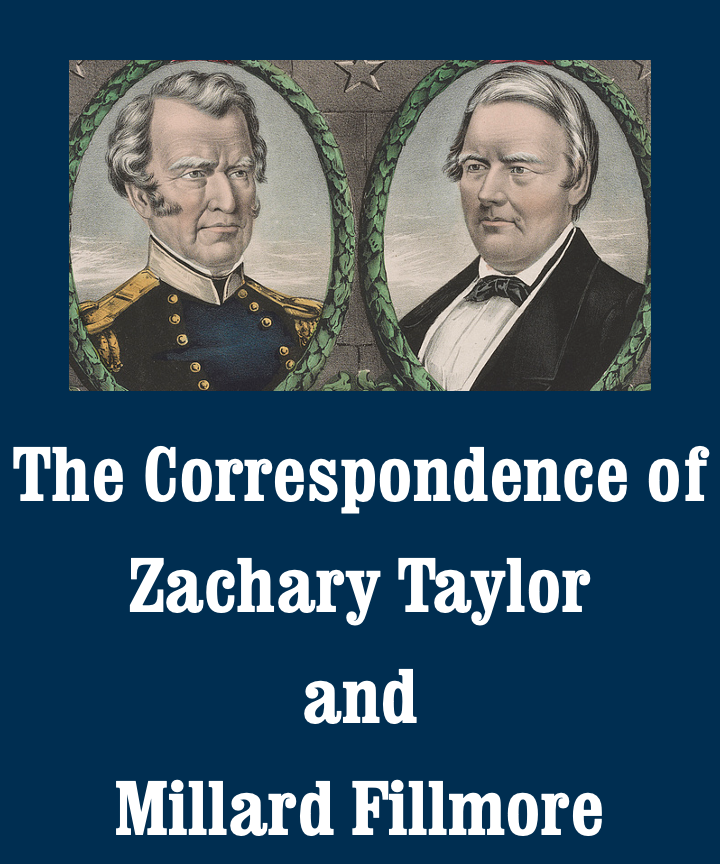
Photograph by Mathew B. Brady [1850–74] (Library of Congress)
Twice in 1844 Fillmore attempted to rise in national or New York politics. In the winter and spring, he sought but was denied the Whig nomination for the vice presidency. In the fall he won the gubernatorial nomination but lost the election. Forced to take time away from politics, he helped found the University of Buffalo (now the University at Buffalo) in 1846 and became its first chancellor. The next year, he won election as state comptroller and moved to Albany. Now a reliable Whig who opposed the Mexican-American War and James K. Polk’s Democratic administration generally, Fillmore attained what he had lost on his first try. In May 1848 the Whigs nominated him to be Zachary Taylor’s vice president. He rode with the general that fall to victory.
Then Taylor died. On July 9, 1850, Fillmore succeeded him as president—only the second vice president to do so. White House policy changed drastically. For one thing, he fired the entire cabinet his first day in office. For another, this Northerner was more proslavery than his Southern predecessor. Fillmore signed the Compromise of 1850, the legislation on the Mexican Cession that Taylor had been trying to shape. Among other provisions, the final series of bills admitted California as a free state, opened the Southwest to slavery, and created a new Fugitive Slave Law. Under the last, Fillmore used federal power to capture enslaved men and women who escaped to the North and to prosecute those who assisted them.
After unsuccessfully seeking the Whig presidential nomination in 1852, Fillmore returned to Buffalo. In 1856 he won the nativist American (or Know Nothing) party’s nomination but lost the election. He died in Buffalo in 1874.
For Further Reading
- Finkelman, Paul. Millard Fillmore. New York: Times Books, 2011.
- Rayback, Robert J. Millard Fillmore: Biography of a President. Buffalo, NY: Henry Steward, Inc., for the Buffalo Historical Society, 1959.
- Rowland, Thomas J. Millard Fillmore: The Limits of Compromise. New York: Nova Science Publishers, 2013.
- Scarry, Robert J. Millard Fillmore. Jefferson, NC: McFarland, 2001.

